SS Tanks: Applications, Features, and Benefits
Overview of SS Tanks
Stainless Steel (SS) Tanks are indispensable in industries ranging from food and beverage to pharmaceuticals and chemical manufacturing. Known for their durability, corrosion resistance, and adaptability, SS tanks are the backbone of modern storage and processing systems. But why are these tanks such a popular choice? Let’s dive into their versatility, design features, and applications to uncover their unparalleled utility.
SS tanks, as the name suggests, are made primarily from stainless steel—a material famed for its strength and resistance to wear and tear. Whether you’re brewing beer, storing water, or housing volatile chemicals, these tanks are designed to meet rigorous industry standards. They come in various shapes, sizes, and customizations, making them adaptable for nearly any application. Wondering how to choose the best one for your needs? Don’t worry; we’ll break it all down for you.
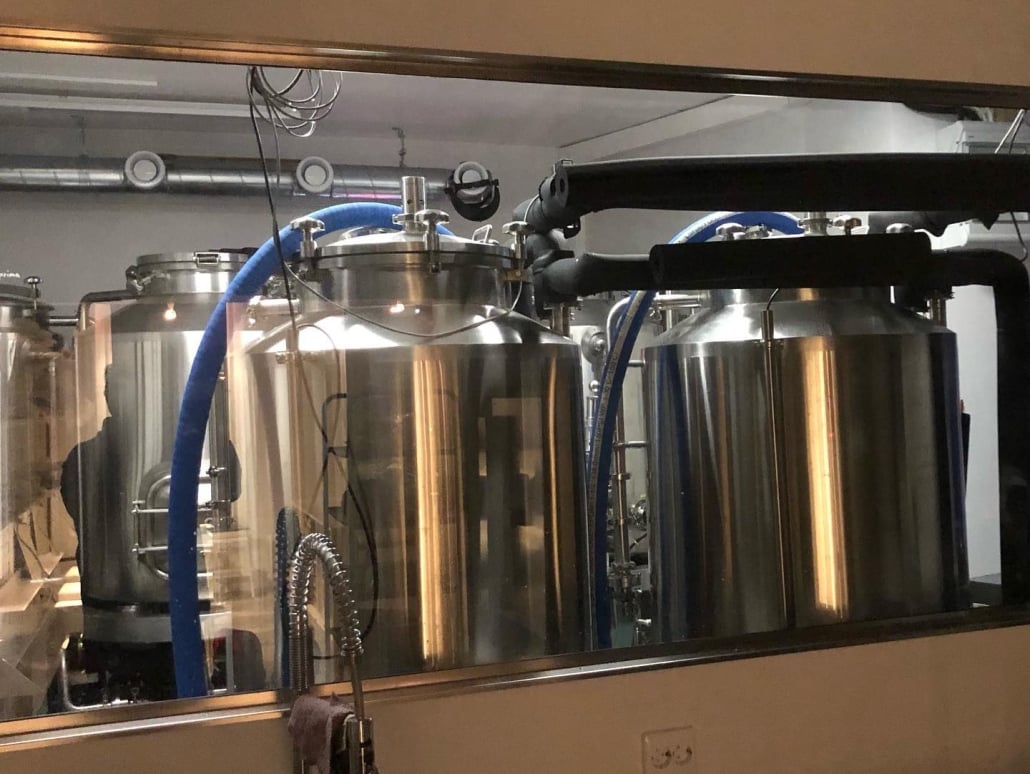
Why Choose Stainless Steel Tanks?
Durability and Longevity
Think of SS tanks as the superheroes of storage. They’re built to last, resisting corrosion from moisture, chemicals, and extreme temperatures. Unlike plastic or mild steel, stainless steel doesn’t crack, warp, or degrade over time. This makes it a cost-effective investment in the long run.
Hygiene and Cleanliness
Ever notice why stainless steel is the go-to material in kitchens and laboratories? Its non-porous surface doesn’t harbor bacteria, ensuring high levels of sanitation. For industries like food and pharmaceuticals, this is a no-brainer.
Customizability
Need a tank for a specific space or purpose? SS tanks can be custom-made with fittings, coatings, and designs tailored to your requirements. From horizontal tanks to jacketed fermentation vessels, the possibilities are endless.
Eco-Friendly
Stainless steel is 100% recyclable. When your tank eventually reaches the end of its lifecycle, it can be repurposed, reducing environmental impact.
The Main Application Areas of SS Tanks
Stainless steel tanks serve numerous purposes across various industries. Here are the most common application areas:
Food and Beverage
SS tanks are vital in processing and storing liquids such as milk, juice, wine, and beer. Their hygienic surface ensures compliance with food safety standards.
Pharmaceuticals
In pharmaceutical manufacturing, SS tanks store active ingredients, solvents, and purified water. Their non-reactive nature ensures product integrity.
Chemical Storage
Resistant to corrosion and extreme conditions, these tanks store acids, alkalis, and volatile chemicals safely.
Water and Waste Management
From potable water storage to wastewater treatment, SS tanks handle it all with ease, thanks to their robustness and long lifespan.
Types of SS Tanks
When it comes to SS tanks, one size doesn’t fit all. Let’s explore the different types available:
1. Storage Tanks
Used for storing liquids like water, oil, or chemicals, these tanks are available in vertical and horizontal configurations.
2. Mixing Tanks
Ideal for blending ingredients in food, pharmaceutical, or chemical processes, these tanks often come with agitators and heating or cooling systems.
3. Pressure Vessels
Designed to withstand high pressures, these are used in industries requiring pressurized storage or processing, such as oil refineries.
4. Jacketed Tanks
These tanks feature an outer jacket for temperature control, making them perfect for fermentation or maintaining consistent product temperatures.
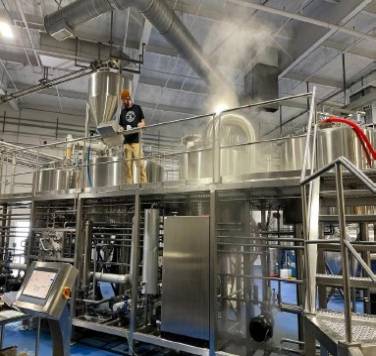
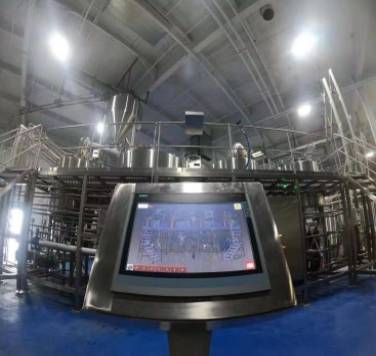
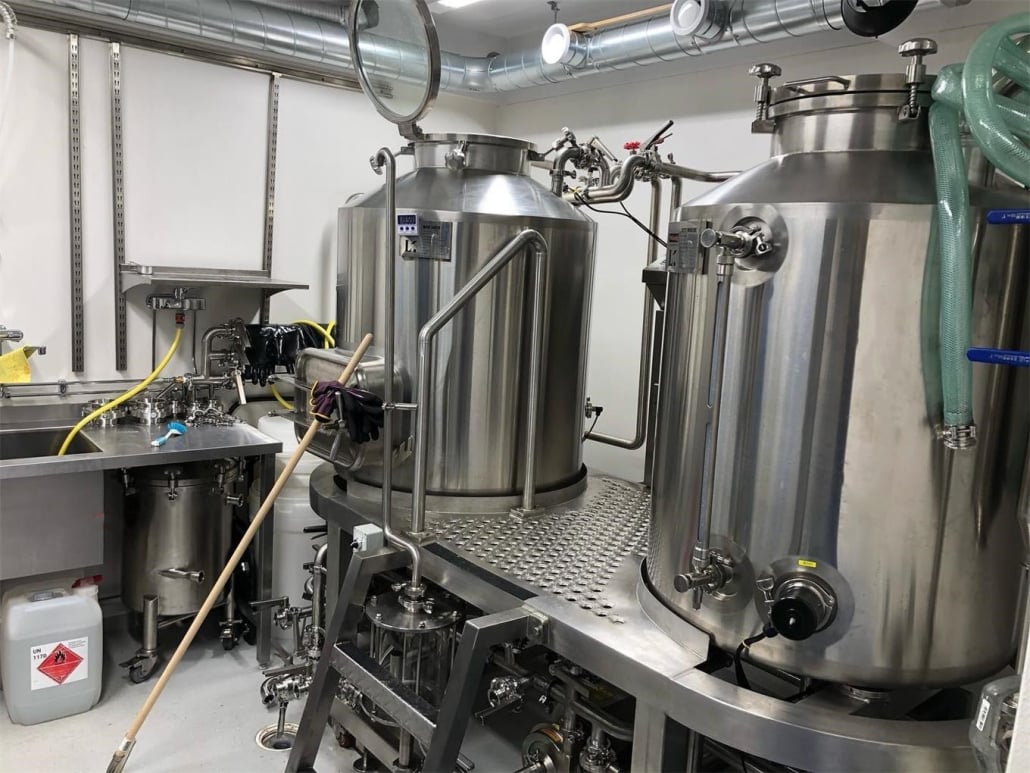

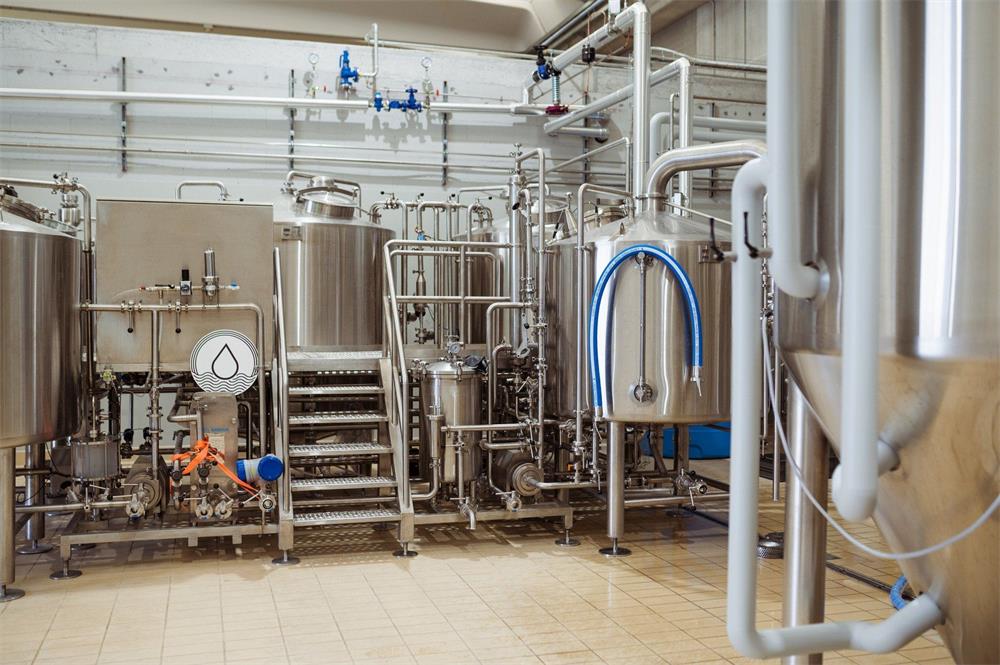
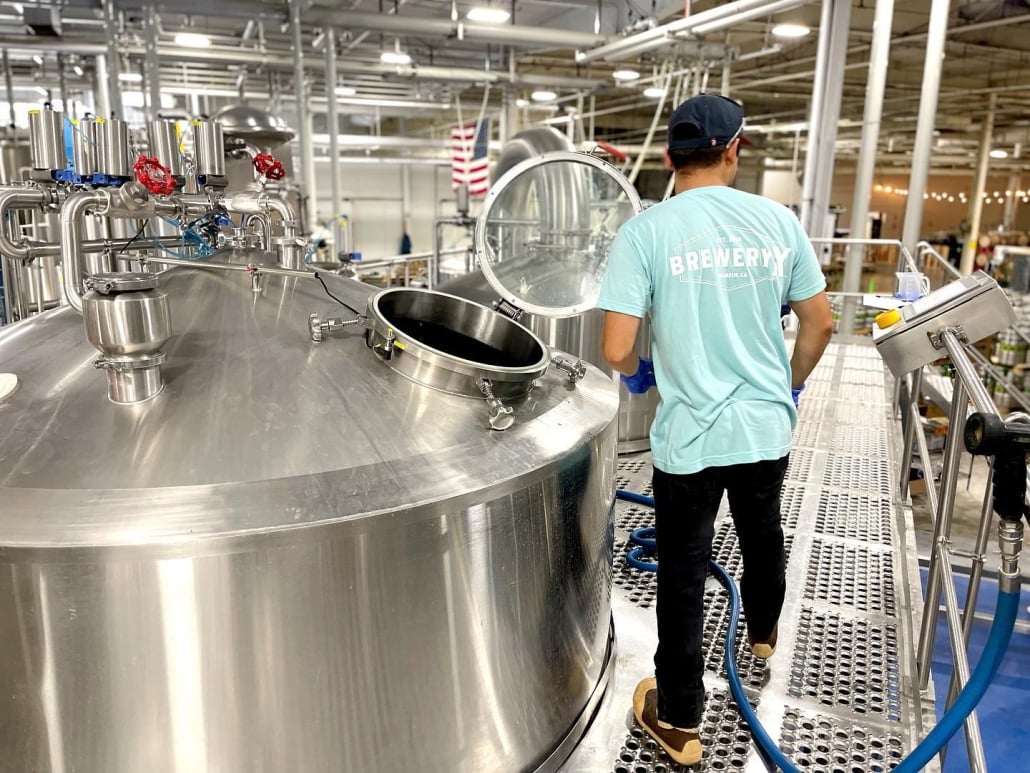
Troubleshooting Common Issues with SS Tanks
Even the best equipment faces occasional hiccups. Here are common issues and how to address them:
Corrosion
While stainless steel resists corrosion, improper cleaning agents or harsh environments can cause pitting. Use non-chloride cleaners and perform routine inspections to prevent damage.
Leaks
Welded joints or fittings can occasionally develop leaks. Regular maintenance and prompt repair of minor cracks can prevent major failures.
Scaling or Residue Build-Up
In industries like brewing or chemical processing, residues can accumulate. Routine cleaning with appropriate chemicals ensures smooth operations.
Brewing Process Using SS Tanks
Beer brewing is a craft that heavily relies on stainless steel equipment. Here’s how SS tanks fit into the process:
Mashing and Lautering
In this initial stage, grains are soaked in hot water to extract sugars. SS tanks with precise temperature control are crucial.
Boiling
The extracted wort is boiled in SS tanks to sterilize and add hops. Stainless steel’s heat resistance ensures even cooking.
Fermentation
Fermentation tanks allow yeast to convert sugars into alcohol. Jacketed SS tanks maintain the optimal temperature for yeast activity.
Storage and Packaging
Once fermented, beer is stored in bright tanks before packaging. SS tanks ensure the beer remains fresh and uncontaminated.
Comparison of SS Tank Features
| Feature | Details |
|---|---|
| Capacity | Ranges from small 50-gallon tanks to massive 50,000-gallon industrial tanks |
| Design | Available in vertical, horizontal, jacketed, or pressure-resistant designs |
| Materials | Typically 304 or 316-grade stainless steel, offering varying levels of corrosion resistance |
| Customization | Features such as agitators, insulation, and temperature controls can be tailored to needs |
Top Suppliers and Price Range
| Supplier Name | Location | Price Range | Special Features |
|---|---|---|---|
| ABC Stainless Co. | USA | $2,000 – $20,000 | Custom designs for food and beverage industries |
| Global Tanks Ltd. | UK | $5,000 – $50,000 | Large-capacity chemical storage tanks |
| EcoSteel Solutions | India | $1,500 – $15,000 | Budget-friendly tanks with high durability |
Installation, Operation, and Maintenance
| Aspect | Details |
|---|---|
| Installation | Requires site preparation, skilled labor for welding, and safety inspections |
| Operation | Follow operational guidelines, such as avoiding overfilling and maintaining pressure limits |
| Maintenance | Regular cleaning, inspection for wear and tear, and timely repairs of fittings and seals |
How to Choose the Right Supplier
| Criteria | Details |
|---|---|
| Experience | Look for suppliers with expertise in your specific industry |
| Customization | Choose vendors who offer tailored solutions to meet your unique requirements |
| Price and Warranty | Compare costs and ensure the supplier offers a robust warranty for peace of mind |
| Customer Reviews | Check online reviews and ask for references to gauge satisfaction levels |
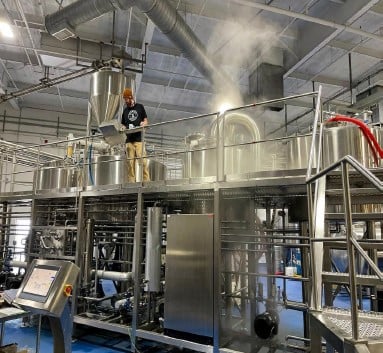
Pros and Cons of SS Tanks
| Pros | Cons |
|---|---|
| High durability and resistance to corrosion | Higher upfront cost compared to alternatives |
| Hygienic and easy to clean | Heavier than plastic tanks |
| Customizable for various applications | May require professional installation |
FAQ
| Question | Answer |
|---|---|
| What is the lifespan of an SS tank? | With proper maintenance, an SS tank can last over 30 years. |
| Are SS tanks suitable for outdoor use? | Yes, they are weather-resistant but may require UV-protective coatings in harsh environments. |
| Can SS tanks store acidic chemicals? | Yes, especially if made from 316-grade stainless steel, which is highly resistant to acids. |
| How often should SS tanks be cleaned? | Ideally, after every use in food applications; periodically for other uses. |
| Are there eco-friendly disposal options? | Yes, stainless steel is 100% recyclable. |
Additional FAQs for SS Tanks
1) Which stainless grade should I choose: 304 vs 316?
- 304 SS is cost‑effective and suitable for most food/beverage and water uses. 316/316L contains molybdenum for superior resistance to chlorides, acids, and CIP chemicals—preferred for pharma, coastal/outdoor, and aggressive chemical storage.
2) How do I prevent pitting and crevice corrosion in SS tanks?
- Avoid chloride‑rich cleaners, maintain passivation (nitric/citric), keep welds smooth (Ra ≤0.8 μm or better), eliminate stagnant zones with hygienic design, and control temperature/chemical concentration during CIP.
3) What surface finish and roughness (Ra) are best for hygienic applications?
- For food/pharma, specify internal Ra ≤0.8 μm; electropolished ≤0.6 μm further improves cleanability and biofilm resistance. Validate with finish certificates and in‑process QA checks.
4) Can SS tanks be used under pressure or vacuum?
- Only if engineered as pressure vessels per ASME/PED with rated MAWP and vacuum rating. Standard atmospheric tanks can collapse under vacuum during cooling/CIP—use vacuum breakers and proper venting.
5) What insulation options improve energy efficiency and safety?
- Common: PU foam (40–80 mm) with stainless cladding for hot/cold duty; mineral wool for high‑temp; vacuum‑jacketed for cryogenic. Select thickness based on duty cycle, ambient conditions, and condensation control.
2025 Industry Trends: SS Tanks
- Data‑ready tanks: More OEMs include RTDs, pressure transmitters, level sensors, and OPC UA/MQTT gateways for IIoT monitoring.
- Sustainability focus: Higher recycled content stainless (≥70% typical), low‑chem passivation, and CIP optimization cut water/energy 10–20%.
- Hygienic design standardization: Wider adoption of EHEDG/3‑A principles in food and beverage tanks, including removable dead‑legs and validated spray device coverage.
- Corrosion resilience: Increased selection of 316L/2205 duplex in chloride‑rich environments and for caustic/acid cycles.
- Lead time normalization: Supply chains improving vs. 2022–2023; custom features (jackets, electropolish, automation) still extend schedules.
2025 Benchmarks and Specifications for SS Tanks
| Attribute | Typical 2025 Value | Notes |
|---|---|---|
| Common alloys | 304/304L; 316/316L; duplex 2205 (select cases) | Choose by media/chloride load |
| Hygienic roughness | ≤0.8 μm Ra (std); ≤0.6 μm electropolished | Improves CIP efficacy |
| Insulation | 40–80 mm PU foam or mineral wool | Energy savings, condensation control |
| CIP water use | 0.5–1.5 L per L processed | Lower with conductivity endpoints |
| Energy reduction via insulation | 8–18% vs. uninsulated | Process and ambient dependent |
| Typical lead time | 6–14 weeks std; +4–8 weeks custom | Automation/electropolish add time |
| Recycled content (SS) | 60–80% | Per major mills’ EPDs |
| Documentation | Material certs (MTR), weld maps, passivation records | Supports QA and compliance |
Sources: EHEDG guidelines; 3‑A Sanitary Standards; Brewers Association QA resources 2024–2025; ASME Section VIII/PED vendor specs; major stainless mill EPDs; MBAA Technical Quarterly on CIP/energy
Latest Research Cases
Case Study 1: Electropolish + CIP Optimization Cuts Water/Energy in SS Tanks (2025)
Background: A beverage plant reported long CIP cycles and high chemical usage across jacketed SS mixing tanks.
Solution: Upgraded interior to ≤0.6 μm Ra electropolish, validated spray coverage, introduced conductivity‑based phase endpoints, and lowered caustic temp with extended contact time.
Results: CIP water −19%, caustic use −14%, energy for hot cycles −11%; microbial swabs passed over 12 weeks; annual OpEx savings projected at 9%.
Case Study 2: 316L vs 304 in Chloride‑Rich Environment (2024)
Background: Coastal craft brewery experienced pitting on 304 tanks near brine cleaning area.
Solution: Replaced high‑risk vessels with 316L, implemented citric passivation, switched to low‑chloride cleaners, and improved ventilation/condensation control.
Results: No new pitting after 10 months; maintenance calls −60%; total cost justified by reduced downtime and longer tank life.
Expert Opinions
- Dr. Jindal Shah, Materials Engineer, Stainless Applications Consultant
“Media chemistry and chloride load should drive alloy selection. 316L or duplex grades pay back quickly where 304 shows early pitting.” - Mary Pellettieri, Quality Consultant; author of Quality Management for Breweries
“Finish and cleanability matter as much as alloy. Specifying smooth internal surfaces and validating CIP reduces biofilm risk and variability.” - Dr. Thomas Roser, Process Engineer, EHEDG Member
“True hygienic design eliminates dead‑legs, ensures full drainability, and validates spray coverage—critical for regulators and consistent quality.”
Practical Tools and Resources
- EHEDG – Hygienic design guidelines: https://www.ehedg.org
- 3‑A Sanitary Standards – Sanitary equipment criteria: https://www.3-a.org
- ASME – Pressure vessel code resources: https://www.asme.org
- Brewers Association – Tank/CIP best practices: https://www.brewersassociation.org
- NACE/AMPP – Corrosion control standards: https://www.ampp.org
- ASTM – Material specs for stainless steels (A240, A262): https://www.astm.org
- ProBrewer – Practitioner forums on SS tanks and CIP: https://www.probrewer.com
- Major SS mills’ EPDs (Outokumpu, Aperam) for recycled content and sustainability data
Sources and further reading:
- EHEDG hygienic design and cleaning validation guidance
- 3‑A Sanitary Standards for vessels and fittings
- ASME Section VIII pressure vessel compliance references
- Brewers Association 2024–2025 QA/CIP benchmarking
- AMPP (formerly NACE) corrosion resistance resources
- ASTM A240 (plate), A262 (intergranular corrosion) materials standards
- OEM spec sheets on finishes, jackets, and automation for SS tanks
Last updated: 2025-09-08
Changelog: Added 5 targeted FAQs; included a 2025 benchmarks/specs table; provided two recent case studies; added expert viewpoints; compiled practical tools/resources with authoritative links.
Next review date & triggers: 2026-01-15 or earlier if EHEDG/3‑A/ASME/AMPP guidance updates, stainless pricing/lead times shift, or new CIP/sustainability data impacts SS tank recommendations.
Share this entry
Interested in learning more about Brewing Systems including additional details and pricing information? Please use the form below to contact us!
YOLONG BREWERY EQUIPMENT FAQS
- Commercial Brewery / Craft Brewery / Microbrewery / Nanobrewery
- What is The Difference Between Craft Beer and Industrial Beer?
- The Bespoke Differences In Custom Brewing Systems
- Everything You Need to Know About Kettle Souring
- How to Choose Brewing Equipment for Your business?
- How To Choose The-Best Partner To Build Your Commercial Microbrewing System?
- Two Detection Sensors That You Need To Use In Your Brewhouse System
- Remote Control Applications in Brewing Equipment/How does it work?
- How To Clean Your Brand New Brewery Tanks?

